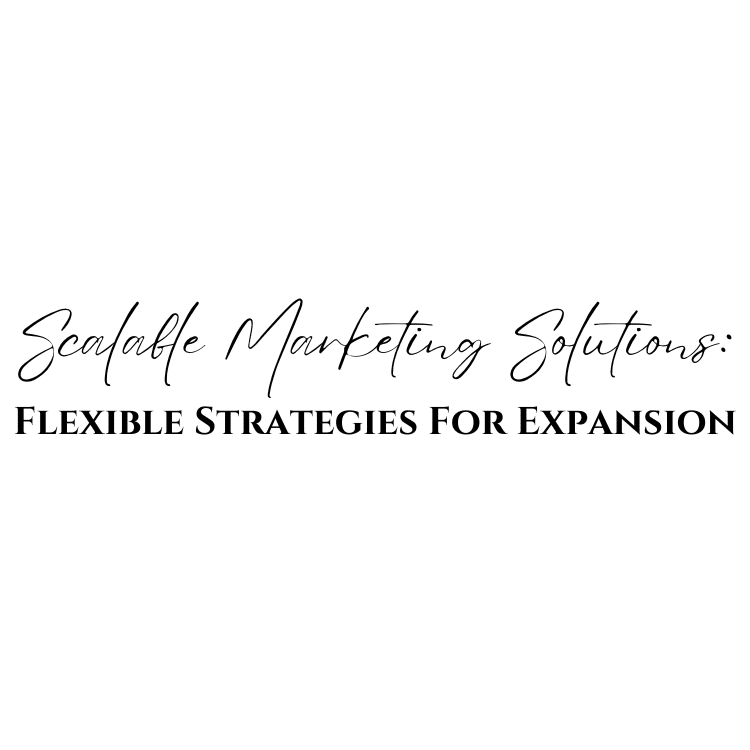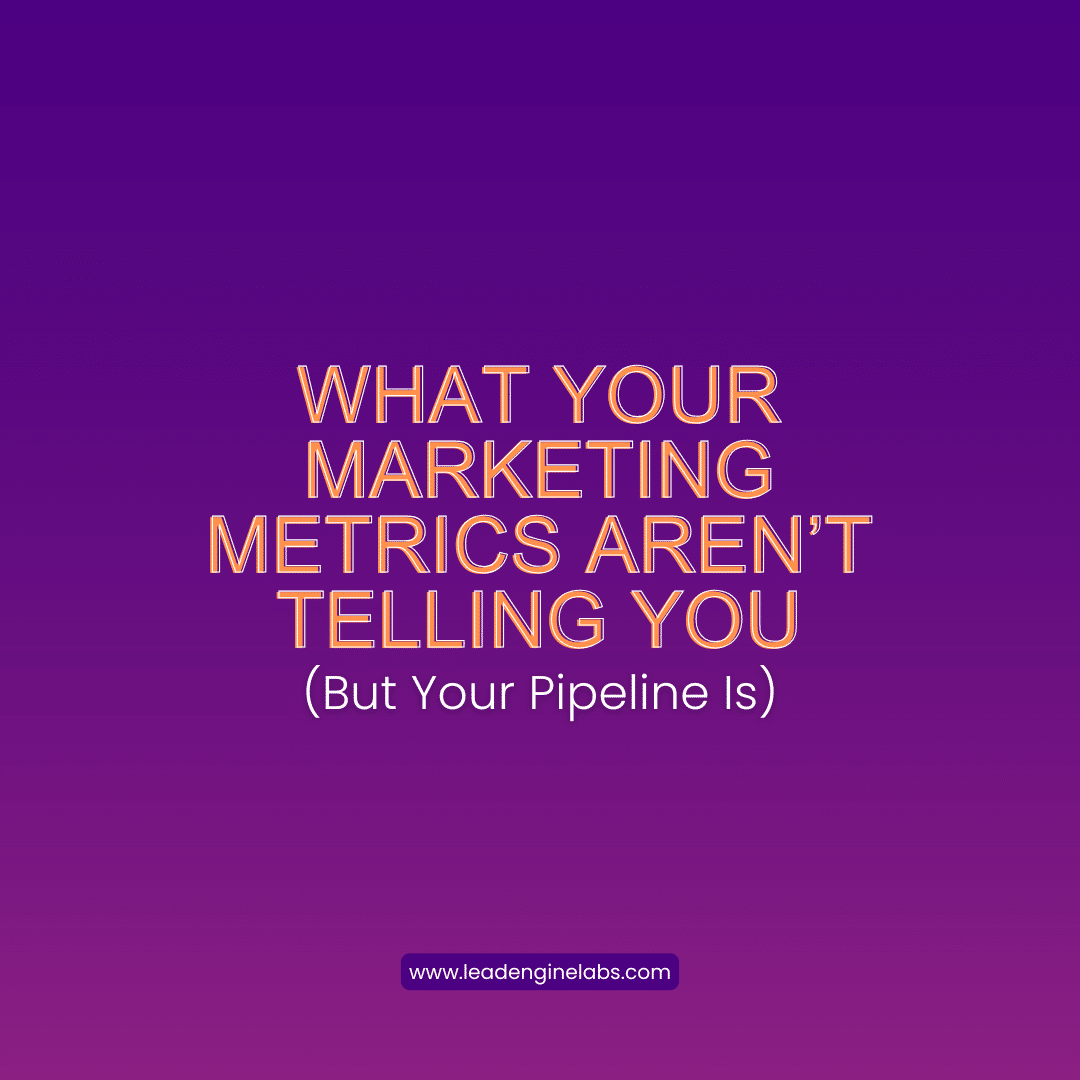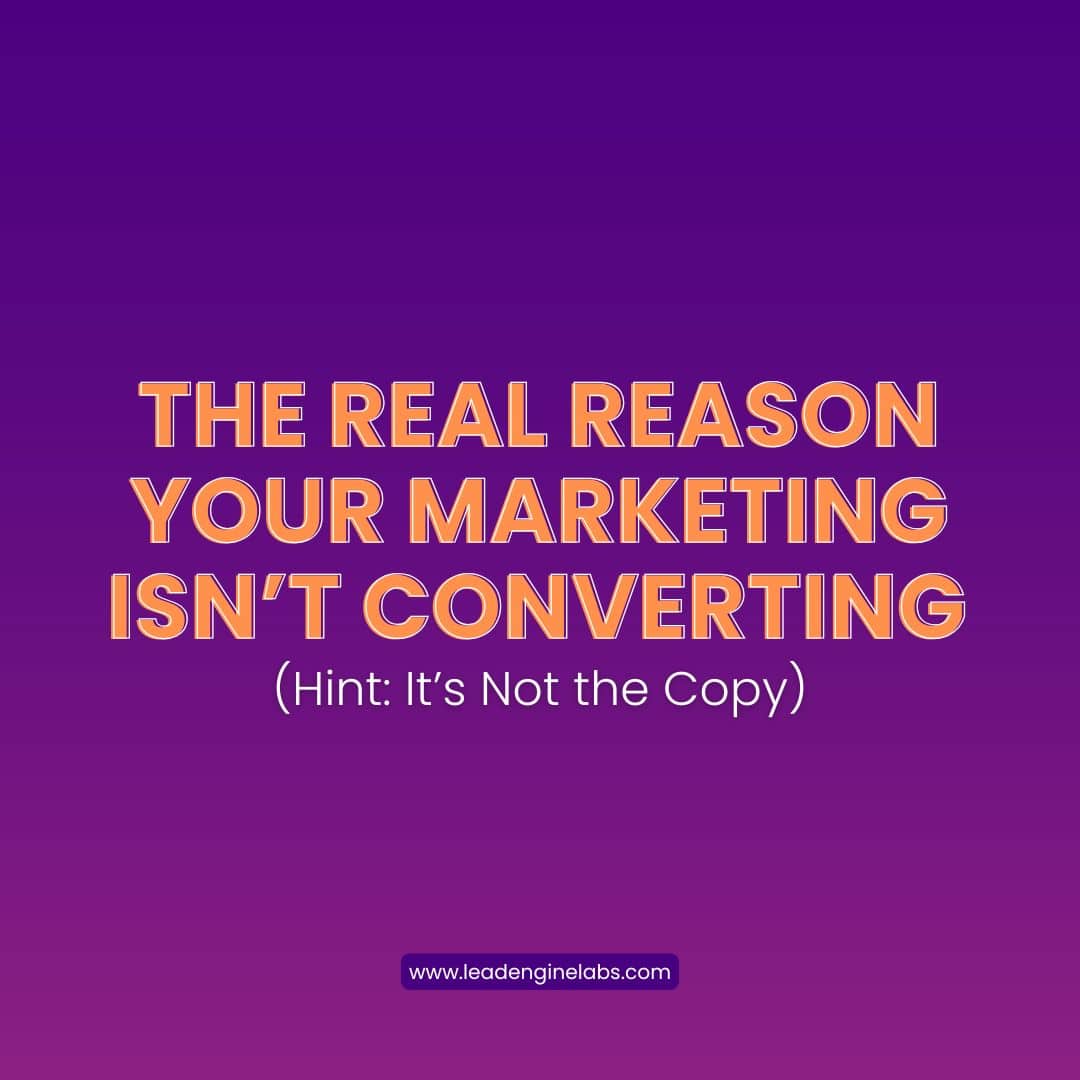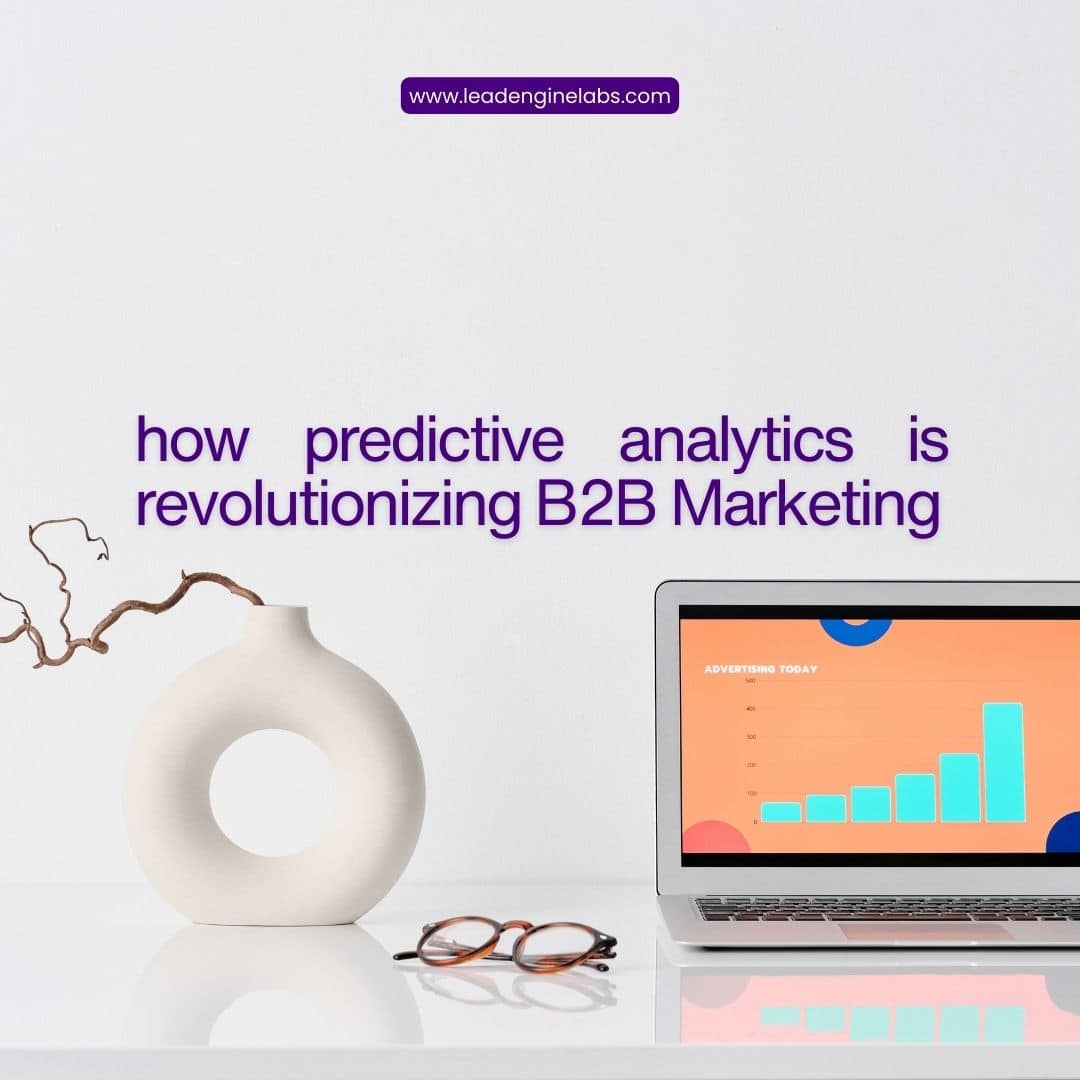
Are you ready to take your business to the next level? If so, then scalable marketing solutions are what you need. These flexible strategies for expansion can help you reach a wider audience and increase your revenue without breaking the bank.
Scalable marketing solutions are designed to grow your business, enabling you to tailor your marketing efforts to meet the specific needs of your target audience. By using these strategies, you can create a personalized approach that resonates with potential customers, driving traffic and boosting conversions.
From social media advertising to email marketing and SEO, there are numerous options available that can help you achieve your growth goals. So why wait? Start exploring the possibilities today and unlock new opportunities for success!
Key Takeaways
- Scalable marketing solutions are designed to adapt to changes in the customer base and allow for the effective allocation of resources to help businesses expand and grow.
- Social media advertising is an effective way to reach a target audience by targeting specific demographics, interests, and behaviors, and measuring success with analytics is crucial for data-driven decisions and determining successful strategies.
- Email marketing is a cost-effective tool for reaching a large audience with personalized messaging, and email automation software creates and sends customized emails to subscribers, which builds trust and increases engagement.
- Monitoring and adapting strategies are crucial for scalable marketing solutions, as continuous improvement allows for staying ahead and remaining competitive, and real-time adjustments allow for responding quickly to changes in consumer behavior or market trends.
Understanding Scalable Marketing Solutions
You need to understand scalable marketing solutions so that you can create flexible strategies that’ll help your business expand and grow.
Scalability challenges are inevitable as your business grows, and it’s important to have a marketing plan that can adapt to these changes. By implementing scalable marketing solutions, you can adjust your tactics based on the needs of your growing customer base.
One of the biggest challenges in scaling up a business is budget constraints. This is where scalable marketing solutions come in handy, as they allow you to allocate resources more effectively. You can prioritize investments in high-return areas such as social media advertising or email campaigns while minimizing spending on less effective channels.
Understanding scalable marketing solutions is crucial for any business looking to expand and grow. It allows you to navigate scalability challenges and make the most out of limited budgets by prioritizing high-return activities like social media advertising.
With this knowledge, you can develop flexible strategies that adapt to changing market conditions and stay ahead of the competition.
Now let’s move on to exploring the benefits of social media advertising for businesses!
Social Media Advertising

You can effectively reach your target audience through social media advertising. By targeting specific demographics, interests, and behaviors, you can ensure that your ads are being seen by the right people.
Additionally, analytics allow you to track the success of your campaigns and make data-driven decisions for future marketing efforts.
Targeting Specific Audiences
By targeting specific audiences, businesses can tailor their marketing messages and reach customers who are most likely to be interested in their products or services. This strategy involves narrowing the target audience based on demographics, interests, behavior, and location. By doing so, businesses can create personalized messaging that resonates with their audience and increases the chances of converting them into loyal customers.
To effectively target specific audiences, it is important to gather data from various sources such as social media platforms, email lists, website analytics, and customer feedback. This data can help businesses understand their audience’s preferences and behavior patterns. By analyzing this information using tools like customer relationship management (CRM) software and segmentation tools, businesses can create targeted campaigns that speak directly to their audience’s needs.
With a targeted approach to marketing, businesses can see a higher return on investment (ROI), increased engagement rates, and improved brand loyalty. Next up is measuring success with analytics which will help you optimize your scalable marketing solutions and strategies even further!
Measuring Success with Analytics
Get ready to see how well your marketing efforts are performing by measuring success with analytics! One of the most valuable aspects of digital marketing is the ability to track and analyze data in real time. This allows you to make informed decisions based on actual results rather than assumptions or guesswork.
Measuring ROI (Return on Investment) is crucial for any business as it helps you determine which scalable marketing solutions and strategies are working and which ones need improvement. Data-driven decision-making should be a central part of your marketing strategy if you want to achieve sustainable growth.
By regularly analyzing key metrics such as website traffic, conversion rates, and customer acquisition costs, you can identify areas that require optimization and make necessary adjustments accordingly. With the right tools and expertise, you can gain invaluable insights into your target audience’s behavior to create more personalized experiences that drive engagement and increase revenue.
So let’s explore how email marketing can further enhance your scalable marketing solutions!
Email Marketing
When it comes to reaching a large audience with personalized messaging, email marketing is an effective tool for businesses of all sizes. With the help of email automation software, you can create and send customized emails to your subscribers based on their interests, behaviors, and preferences. This not only helps in increasing engagement but also builds trust among your prospects.
Personalized messaging plays a key role in email marketing as it helps in creating a connection with your subscribers. You can segment your email list based on various criteria such as demographics, behavior, past purchases, or engagement levels. By doing so, you can tailor your messages to each group and make them feel valued. This results in higher open rates, and click-through rates and ultimately leads to conversions.
In addition to being cost-effective compared to other marketing channels, email marketing provides valuable insights into how well your campaigns are performing. You can track metrics like open rates, click-through rates, and conversion rates which help you understand what’s working and what’s not. By continuously optimizing your campaigns based on these insights, you can improve the effectiveness of your email communication over time.
With an understanding of how effective personalized messaging and automation are in email marketing success, let’s move on to the next topic: search engine optimization (SEO).
Search Engine Optimization (SEO)

When it comes to Search Engine Optimization (SEO), it’s crucial to understand the importance of keyword research and creating quality content. By conducting thorough keyword research, you can ensure that your website is optimized for the right keywords and phrases that your target audience is searching for.
Creating high-quality content that meets the needs of your audience not only helps with SEO rankings but also establishes your brand as an authority in your industry.
Importance of Keyword Research
Keyword research is crucial for any successful marketing campaign because it helps businesses understand the specific words and phrases their target audience is searching for. By conducting thorough keyword research, you can identify long tail keywords that are more specific to your business and have less competition, making it easier to rank higher on search engine results pages (SERPs).
Additionally, competitor analysis through keyword research enables you to stay ahead of your competition by understanding what keywords they’re targeting and how you can differentiate yourself.
Studies show that 70-80% of search engine users only focus on organic results, which makes it essential to incorporate the right keywords into your content. This means that without a proper understanding of the language used by your target audience, you might be losing out on valuable traffic and potential customers.
Therefore, investing time in conducting comprehensive keyword research will help guide your scalable marketing solutions and strategy toward success by ensuring that your website ranks high enough for relevant searches. With this foundation in place, creating quality content becomes significantly more effective in driving traffic and conversions.
Creating Quality Content
To create content that resonates with your audience, you should focus on understanding their needs and interests. By doing so, you can improve engagement and enhance readability. Start by researching your target audience’s demographics, interests, and pain points. This will help you identify the type of content they are looking for and how to present it in a way that is both informative and engaging.
Once you have identified your target audience’s needs, it’s time to start creating quality content. Focus on providing value to your readers through informative articles, videos, or infographics that address their pain points or offer solutions to common problems they face. Use simple language and write in a conversational tone to make it easier for readers to understand the message you’re trying to convey. Incorporating visual elements like images or videos can also help break up text-heavy content and keep readers engaged. By creating quality content that speaks directly to your target audience, you can increase engagement levels which will ultimately lead to increased traffic and conversions on your website.
As we move forward with our discussion on scalable marketing solutions, let’s now shift our attention toward pay-per-click (PPC) advertising.
Pay-Per-Click (PPC) Advertising
PPC advertising is like a well-oiled machine, smoothly driving traffic to your website and generating leads. With PPC campaign optimization, you can ensure that your ads are targeting the right audience and using the most effective keywords. By tracking ROI for PPC ads, you can also measure the success of your campaigns and adjust them as needed.
One of the biggest advantages of PPC advertising is its flexibility. You can set a budget that works for your business and only pay when someone clicks on your ad. This means you have control over how much you spend on advertising, which is especially important for businesses looking to expand their marketing efforts.
In addition to being cost-effective, PPC advertising also allows you to reach a wider audience than other forms of marketing. By targeting specific keywords and demographics, you can attract potential customers who may not have otherwise found your business. However, it’s important to keep in mind that while PPC advertising can be a powerful tool for growth, it should be used in conjunction with other marketing strategies such as influencer marketing.
Influencer marketing is another effective way to reach new audiences and expand your brand’s reach. By partnering with influencers who align with your brand values and target audience, you can tap into their loyal following and gain exposure among their followers. But how do you find the right influencers? We’ll explore this topic in the next section.
Influencer Marketing
If you want to expand your brand’s reach and tap into new audiences, influencer marketing can be a powerful tool for you. By collaborating with influencers who have a strong following on social media, you can create impactful campaigns that generate buzz around your brand.
Here are three reasons why influencer marketing is worth considering:
-
Trusted Recommendations: Influencers have built their reputation by creating content that resonates with their audience. When an influencer recommends your product or service, it comes across as a trusted recommendation from someone they know and trust.
-
Increased Engagement: Influencers can engage their followers in ways that brands cannot. By partnering with an influencer, you can tap into their creativity and leverage their unique voice to create content that resonates with their audience.
-
Collaboration Opportunities: Working with influencers allows you to collaborate with individuals who are experts in creating engaging content. By leveraging their expertise, you can create campaigns that stand out and generate buzz around your brand.
Incorporating influencer marketing into your overall marketing strategy can help take your business to new heights. However, it’s just one piece of the puzzle when it comes to building a successful brand online. Content marketing is another critical element in building awareness and driving engagement for your business – let’s explore this next!
Content Marketing
If you want to attract and retain customers, you need to create content that engages them.
Your content should be shareable so that it can reach a wider audience and increase your brand awareness.
By leveraging social media for distribution, you can ensure that your content is seen by the right people at the right time, resulting in increased traffic and conversions.
Creating Engaging and Shareable Content
Crafting compelling and relatable content that resonates with your target audience is key to building a strong online presence and increasing brand awareness. In today’s fast-paced world, people have shorter attention spans, which makes it essential to create engaging and shareable content that captures their interest and keeps them coming back for more. Interactive features such as quizzes, polls, and games are an excellent way to keep your audience engaged while visual storytelling through images, videos, or infographics can help convey complex ideas in a digestible format.
To create engaging content, you must first understand your audience’s pain points and interests. Research what topics they care about the most and tailor your content accordingly. The table below provides some examples of interactive features that you can incorporate into your content strategy along with the benefits they offer:
| Interactive Feature | Benefits |
|---|---|
| Quizzes | Increases engagement by challenging users to test their knowledge |
| Polls/Surveys | Gathers valuable feedback from audiences on specific topics or products/services |
| Games | Provides an entertaining way for users to interact with your brand |
Incorporating these elements into your marketing strategy can not only boost engagement but also increase shares and drive traffic to your website. Once you have created compelling content, the next step is leveraging social media for distribution.
Leveraging Social Media for Distribution
Utilizing social media platforms is an effective way to distribute your engaging content and reach a wider audience. With the ever-changing social media trends, it’s important to stay up-to-date on what works best for each platform.
Cross-platform promotion is also essential to maximize your reach and potential conversions. To effectively leverage social media for distribution, consider these tips:
- Optimize your content for each platform
- Utilize hashtags to increase visibility
- Engage with your followers by responding to comments and messages
- Use paid advertising options for targeted campaigns
- Collaborate with influencers or other brands
By implementing these strategies, you can expand your brand’s reach and engagement through social media. However, it’s important to monitor the effectiveness of these tactics and adapt as necessary to ensure continued success in reaching your marketing goals.
Moving forward, let’s explore how monitoring and adapting strategies can further improve scalability in marketing efforts.
Monitoring and Adapting Strategies
By keeping an ear to the ground and adjusting our sails accordingly, we can navigate through any storm that may arise in the ever-changing landscape of marketing. This means that monitoring and adapting strategies is crucial for scalable marketing solutions.
Continuous improvement is key, as it allows us to stay ahead of the curve and remain competitive. By analyzing data and tracking metrics in real-time, we can make informed decisions about which strategies are working and which ones need to be adjusted.
Real-time adjustments allow us to respond quickly to changes in consumer behavior or market trends. In today’s fast-paced world, this is more important than ever before. By staying agile and adaptable, we can optimize our marketing efforts and achieve better results.
This requires a willingness to experiment with new ideas and take calculated risks. Ultimately, monitoring and adapting strategies are essential for achieving sustainable growth in any business. It allows us to stay relevant, engage with customers effectively, and ultimately drive revenue growth.
As markets continue to evolve rapidly, those who can adapt will have a distinct advantage over their competition. With continuous improvement as our guiding principle, we can confidently navigate through whatever challenges lie ahead in the world of marketing.
Frequently Asked Questions
How much does it cost to implement a scalable marketing solution?
Implementing a scalable marketing solution can vary in cost depending on factors such as the scope of the project and the resources needed. It’s important to evaluate ROI to ensure investment is worth it.
Can scalable marketing solutions be applied to all industries or are there limitations?
There are industry limitations to scalable marketing solutions. However, the adaptability factors of a company determine its potential success in implementing these strategies. Innovation is key to staying ahead in any industry.
What are some common challenges faced when implementing scalable marketing solutions?
Implementing scalable marketing solutions can present challenges such as measuring effectiveness and adapting to market changes. It would help if you were strategic, innovative, and flexible to overcome these obstacles and achieve successful results in your marketing efforts.
How long does it typically take to see results from a scalable marketing strategy?
You want results, and you want them fast. Measuring the success of a scalable marketing strategy varies, but adjustments can be made to optimize performance. Stay patient, stay persistent, and stay innovative.
Are there any specific tools or technologies that are recommended for implementing scalable marketing solutions?
To implement scalable marketing solutions, consider using marketing automation and machine learning tools. These technologies can help streamline processes, personalize messaging, and optimize campaigns for maximum impact. Stay ahead of the competition with cutting-edge technology.
Conclusion
Congratulations! You now have a clear understanding of scalable marketing solutions that can help you expand your business. By utilizing social media advertising, email marketing, SEO, PPC advertising, influencer marketing, and content marketing, you can reach a broader audience and increase your revenue.
But remember, the world of digital marketing is constantly evolving. It’s crucial to monitor your strategies and adapt them accordingly. And just like a chess player must anticipate their opponent’s next move, you must also stay ahead of the competition by staying current with trends and technology.
With these flexible strategies in your arsenal, you’re well-equipped to tackle the challenges that come with expanding your business. So go forth and conquer. The possibilities are endless!




